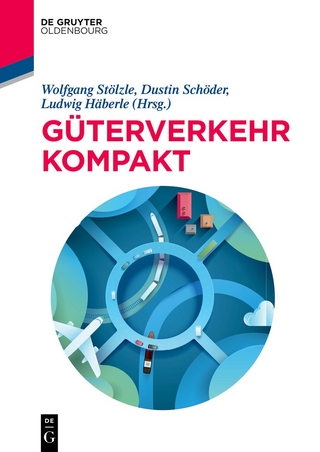
Managing Innovative Projects and Programs
Using the ISO 56000 Standards for Guidance and Implementation
Seiten
2022
Productivity Press (Verlag)
978-1-032-19762-3 (ISBN)
Productivity Press (Verlag)
978-1-032-19762-3 (ISBN)
It has been estimated that over 75% of the innovative projects that begin through the Innovation Management System are either a failure or they failed to produce the desired results.
It has been estimated that over 75% of the innovative projects that begin through the Innovation Management System (IMS) are either failures or they failed to produce the desired results. The biggest wastes most medium- to large-size organizations face are the waste of money, time, reputation, opportunity, and income that these failures are costing them. Following this book’s recommendations could reduce this failure cost by as much as 70%.
The purpose of this book is to provide a step-by-step procedure on how to process a medium- or large-size project, program, or product using an already-established IMS that considers the guidance given in ISO 56002:2019 – Innovation Management Systems Standard. Often the most complicated, complex, difficult, and challenging system used in an organization is the IMS. At the same time, it usually is the most important system because it is the one that generates most of the value-adding products for the organization, and it involves most of the key functions within the organization.
The opportunity for failure in time and the impact on the organization is critical and often means the difference between success and bankruptcy. Throughout this book, the authors detail the high-impact inputs and activities that are required to process individual projects/programs/products through the innovation cycle. Although this book was prepared to address how medium to large projects, programs, and products proceed through the cycle, it also provides the framework that can be used for small organizations and simple innovation activities. Basically, the major difference between large- and small-impact innovation projects is that the small projects can accept more risks, require less formal documentation, use simpler communication systems, and require fewer resources. It’s important to remember that the authors are addressing an existing IMS rather than trying to create an entirely new one.
Currently, this is the only book geared for professionals responsible for managing innovative projects and programs using ISO 56002:2019 – Innovation Management – Innovation Management System – Guidance to provide a comprehensive management strategy and step-by-step plan and ISO 56004 Innovation Management Assessment –Guidance. It provides a comprehensive analysis of what is required from the time an opportunity is recognized to the time the customer is using the innovative product.
The book also introduces a new Process modeling cloud service that allows you to drill down 5 levels from the system level to the job description level and includes free access to many of the book’s best practice Process models.
It has been estimated that over 75% of the innovative projects that begin through the Innovation Management System (IMS) are either failures or they failed to produce the desired results. The biggest wastes most medium- to large-size organizations face are the waste of money, time, reputation, opportunity, and income that these failures are costing them. Following this book’s recommendations could reduce this failure cost by as much as 70%.
The purpose of this book is to provide a step-by-step procedure on how to process a medium- or large-size project, program, or product using an already-established IMS that considers the guidance given in ISO 56002:2019 – Innovation Management Systems Standard. Often the most complicated, complex, difficult, and challenging system used in an organization is the IMS. At the same time, it usually is the most important system because it is the one that generates most of the value-adding products for the organization, and it involves most of the key functions within the organization.
The opportunity for failure in time and the impact on the organization is critical and often means the difference between success and bankruptcy. Throughout this book, the authors detail the high-impact inputs and activities that are required to process individual projects/programs/products through the innovation cycle. Although this book was prepared to address how medium to large projects, programs, and products proceed through the cycle, it also provides the framework that can be used for small organizations and simple innovation activities. Basically, the major difference between large- and small-impact innovation projects is that the small projects can accept more risks, require less formal documentation, use simpler communication systems, and require fewer resources. It’s important to remember that the authors are addressing an existing IMS rather than trying to create an entirely new one.
Currently, this is the only book geared for professionals responsible for managing innovative projects and programs using ISO 56002:2019 – Innovation Management – Innovation Management System – Guidance to provide a comprehensive management strategy and step-by-step plan and ISO 56004 Innovation Management Assessment –Guidance. It provides a comprehensive analysis of what is required from the time an opportunity is recognized to the time the customer is using the innovative product.
The book also introduces a new Process modeling cloud service that allows you to drill down 5 levels from the system level to the job description level and includes free access to many of the book’s best practice Process models.
H. James Harrington, Sid Ahmed Benraouane
Acknowledgments. Preface. About the Authors. Chapter 1 Introduction to Project Innovation Cycle. Chapter 2 ISO 56002:2019. Chapter 3 Assessing the IMS: A Discussion of 56004:2019. Chapter 4 The PIC Cast Members. Chapter 5 The PIC Overview. Chapter 6 Phase I: Creation. Chapter 7 Phase II: Preparation and Producing. Chapter 8 Phase III: Delivery. Chapter 9 Special Mention Tools and Methodologies. Bibliography. Appendix A: The Enhance Solutions Platform™ for Innovation Management. Appendix B: Most Used Tools. Index.
| Erscheinungsdatum | 27.06.2022 |
|---|---|
| Reihe/Serie | Management Handbooks for Results |
| Zusatzinfo | 68 Line drawings, black and white; 68 Illustrations, black and white |
| Verlagsort | London |
| Sprache | englisch |
| Maße | 152 x 229 mm |
| Gewicht | 810 g |
| Themenwelt | Wirtschaft ► Betriebswirtschaft / Management ► Logistik / Produktion |
| Wirtschaft ► Betriebswirtschaft / Management ► Unternehmensführung / Management | |
| Wirtschaft ► Volkswirtschaftslehre | |
| ISBN-10 | 1-032-19762-5 / 1032197625 |
| ISBN-13 | 978-1-032-19762-3 / 9781032197623 |
| Zustand | Neuware |
| Haben Sie eine Frage zum Produkt? |
Mehr entdecken
aus dem Bereich
aus dem Bereich
Grundlagen - Spezialthemen - Übungen
Buch | Softcover (2022)
Springer Gabler (Verlag)
39,99 €


